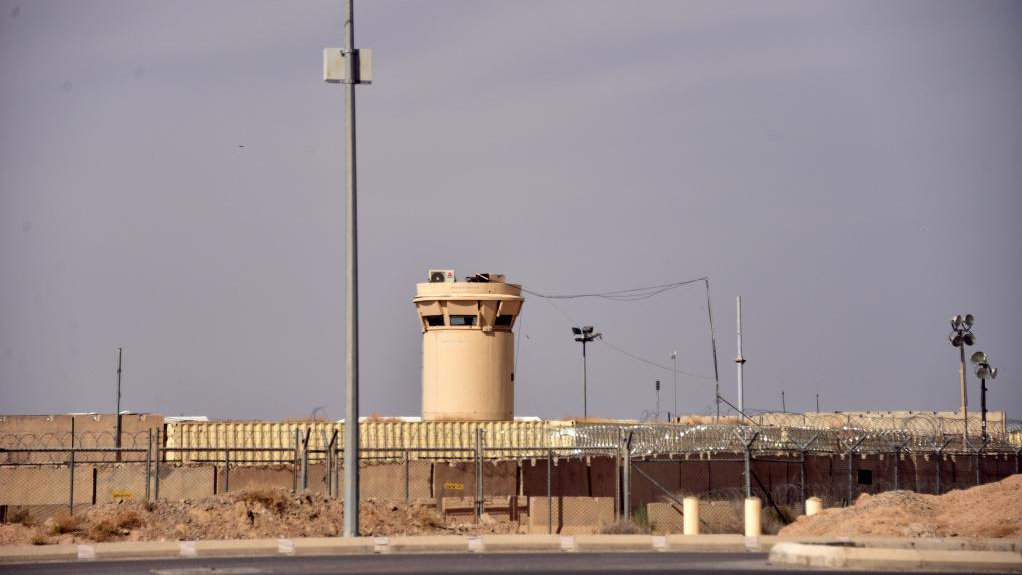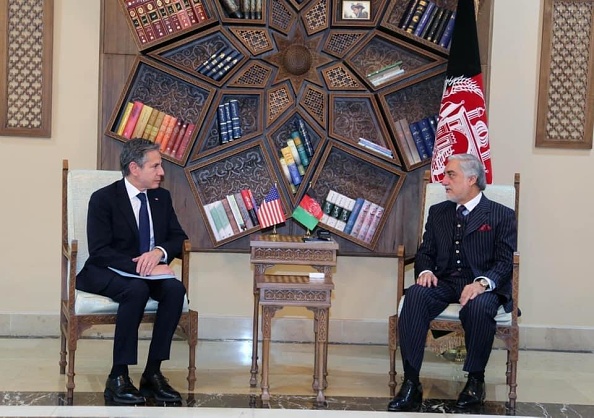
Kandahar Air Field, a NATO-led coalition forces' military base, in Daman district of Kandahar province, Afghanistan, April 15, 2021. /Xinhua
Kandahar Air Field, a NATO-led coalition forces' military base, in Daman district of Kandahar province, Afghanistan, April 15, 2021. /Xinhua
Editor's note: Thomas O. Falk is a London-based political analyst and commentator. He holds a Master of Arts in International Relations from the University of Birmingham and specializes in U.S. affairs. The article reflects the author's opinions and not necessarily the views of CGTN.
On the 20th anniversary of 9/11, the U.S. will withdraw from Afghanistan. Albeit always inevitable, the timing is ill-advised, counterproductive and dangerous. Not only for Afghanistan, but the West as a whole.
Four years, Donald Trump's foreign policy – or lack thereof – was subject to fierce critique. His promise to bring all troops home was one of his main priorities, albeit primarily for election purposes. However, his Defense Secretary, Marks Esper, convinced the former president to only conduct a withdrawal under strict conditions. Most notably, the Taliban had to cease their relationship with Al-Qaeda and other terrorist organisations.
These conditions were never met.
It is almost impossible to argue that the U.S.'s mission in Afghanistan has not been costly.
However, despite all the difficulties and the American lives lost in Afghanistan, one needs to accept that the mission's primary goals – once the Taliban were defeated in 2001 – were upheld, namely to prevent the possibility to orchestrate terrorist attacks in the U.S. from Afghan soil.
Moreover, when one talks about America's presence in Afghanistan today, it's important to note that the situation does not resemble the quagmire years ago when more than 100,000 American troops were actively fighting and – that is part of the Afghanistan war's tragic legacy – dying.
Today the U.S. has approximately 2,500 troops left in the country, which are primarily tasked with training and assisting the Afghan forces while also conduct counter-terrorism missions.
The fighting in the country, the heavy lifting, meanwhile, is being done by the Afghan security forces, which account for 96 percent of combat operations.
"Bringing our troops home does not mean ending our relationship with Afghanistan or our support for the country," Secretary Antony Blinken said about the decision. "Our support, our engagement and our determination remain."
But this is hardly true. The U.S. is not only withdrawing its forces. They are withdrawing without any conditions to the Taliban, and the implications for Afghanistan and the West are equally abominable.

United States Secretary of State Antony Blinken meets Chairman of the High Council for National Reconciliation Abdullah Abdullah on the withdrawal of U.S. troops from Afghanistan in Kabul, Afghanistan, April 15, 2021. /Getty
United States Secretary of State Antony Blinken meets Chairman of the High Council for National Reconciliation Abdullah Abdullah on the withdrawal of U.S. troops from Afghanistan in Kabul, Afghanistan, April 15, 2021. /Getty
Blinken's surprise visit to Afghanistan on April 15 and his attempt to not only publicly sell the U.S.'s withdrawal but pledge to Afghanistan's President Ashraf Ghani that the decision would not impact U.S.-Afghan relations, in general, does little to change this.
Instead, the decision is making the Taliban an immediate winner. The negotiations with the Afghan government that were supposed to continue have become obsolete, with the Taliban cognizant that the U.S.'s withdrawal equals the longed-for return to power by military means.
Without the U.S.'s presence, the enormous political and humanitarian advances that the country has made since the Taliban regime was first defeated in 2001 are being jeopardized.
With the U.S. and subsequently the NATO forces out of the picture, Afghanistan's last line of defense disappears. President Ghani's government and its forces are unlikely to withstand pressure from the Taliban. The result is possibly going to be the fall of Kabul in a bloody civil war and devastation for the Afghan people, who already suffered tremendously.
But the risks do not end here. With the Taliban's return to power, they will once again harbor Al-Qaeda and other terrorist groups. Afghanistan's rebirth as a terrorist stronghold would have geopolitical implication, as it would once again become a viable threat to other nations.
In a worst-case scenario, Washington could be forced to withdraw from its withdrawal and reappear on the Hindu Kush, but with a significantly more potent force than currently deployed.
The latter makes Biden's announcement all the more surprising. He of all people should be mindful of the risks a withdrawal carries. Under Barack Obama, he advocated in favor of the U.S. withdrawal from Iraq. Obama obliged.
However, once Obama withdrew troops, the Iraqi government was incapable of combatting the Islamic State, and the White House was forced to redeploy its servicemen in increased numbers.
Washington appears to have learned little from that experience. Moreover, Biden's plan also contradicts the mantra of "American leadership." Unilaterally ending the joint mission with NATO and its allies unconditionally is far from the promises Biden has made that America was not only back but ready to lead again and, above all, a reliable partner.
With the unconditional withdrawal, Biden is making a mistake that shows that he, too, will not shy away from populist decisions similar to Trump's during his term in office, as the withdrawal from Afghanistan has little to do with rationality for the aforementioned reasons, but rather is the result of the zeitgeist of ceasing "endless wars," a mantra Trump essentially started.
The fact that Biden, who has so far been doing everything in his power to break away from his predecessor's way of conducting politics, is now succumbing to a rather Trumpian way of conducting his foreign policy in Afghanistan is not only worrisome, but could carry a hefty price tag for all parties involved – today's sales pitch in Kabul notwithstanding.
(If you want to contribute and have specific expertise, please contact us at opinions@cgtn.com.)

